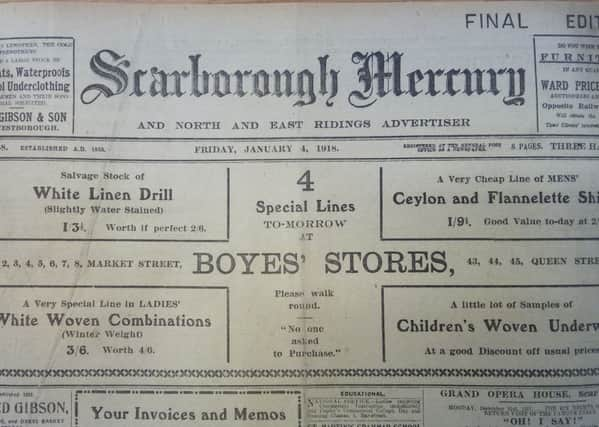1918 court: Troubled girl sent to workhouse for thefts


She pleaded guilty to both charges.
The chief constable, in regard to the first case, that Susan Fawcett was a married woman who resided at 1 Atlas Place. About two o’clock on Monday afternoon prisoner went to her house and asked if she could have a wash. She was known by sight by Mrs Fawcett, who allowed her to have a wash in the kitchen. At that time Mrs Fawcett’s purse contained a 10s note and 2½d in bronze was on mantelpiece in the kitchen. Mrs Fawcett was going about her household duties, attending her baby and so on. After she had washed, prisoner asked if she might go into the backyard. She went and did not return. Mrs Fawcett subsequently missed the note, and gave information to the police. Mrs Fawcett then went to Smith’s Cafe in Leading Post Street where she saw prisoner and asked her about the note, but prisoner replied that she knew nothing about it. Prisoner’s sister, Florence Maw, was also at Smith’s Cafe, and after Mrs Fawcett had gone the prisoner called her sister, gave her 6s and said: Take it to Mrs Fawcett’s house, I have stolen it from there.
Florence Maw took the 6s to 1 Atlas Place and handed it to a person named Miss Ross, who lived with Mrs Fawcett. PC Taylor made enquiries, saw prisoner in Elders Street, and cautioned her. She replied: “Yes, I stole it.” She was cautioned and charged and made no reply.
Advertisement
Hide AdAdvertisement
Hide AdIn the second case Annie Elizabeth Swift resided with her father, John Henry Swift, cycle dealer, 6, St Thomas Street. She assisted her father in the business. Shortly after one o’clock on Monday the accused went into the shop and asked: “What is the price of the cheapest Thermos flask?” Miss Swift told her they had none in stock and she left the shop. Accused had been in the shop a few moments alone. Miss Swift entering after the bell rang. There were about ten wristlet watches in a box on a fixture at the end of the counter, and after accused had left one of these was missed. The value was about 21s. The matter was reported to the police, enquiries were made, and it appeared that accused gave her sister, Florence Maw, the watch late on Monday afternoon accused asking her to keep it for her, as it belonged to a soldier who was in Salonika. The watch was recovered from Florence Maw later in the day by PC Taylor. Subsequently charged accused made no reply.
Asked is she had anything to say, prisoner replied: “I had nothing to eat, and my father won’t let us go home. My sister was at home, but my father didn’t know.” Accused then began to cry.
Asked if he knew anything about accused, the chief constable said that, unfortunately, he had considerable knowledge of these two girls, and the former lady probation officer had had considerable trouble with them. She (the probation officer) and himself had tried their best to alter their course of life. These two girls were infatuated with soldiers.
It was a case which cried loudly for the girls to be got into some sort of a home. At last the former probation officer and himself got them home to Cayton, but they apparently left again, and had got back to Scarborough during the last few days. “You cannot,” said the chief constable, “keep them away from soldiers.”
The chairman: What age is she?
Advertisement
Hide AdAdvertisement
Hide AdThe chief: The accused is 19. He added that the girls were members of a large family - seven girls and four boys. He did not know what supervision there had been at home. The father was a bricklayer, and was poor in a sense, having regard to the size of the family. But these girls were quite capable of following employment, but they would not get it. The accused acknowledged she had done only five days work in the past twelve months.
The chairman: The difficulty is that having lost her character it is harder for her to get work.
The chief agreed, but said that the girls would not work.
Mr T Barrett (probation officer) said he knew the girls and he was sorry he did not know anything good of them.
The chairman: You have to get a character to help you to do something. We wish to give you an opportunity to retrieve it, and we want to do the best for you.
The chairman suggested that the case should be adjourned for a week, for the accused to go to the workhouse, get cleaned up and consider the matter with a view to going into a home. She agreed.